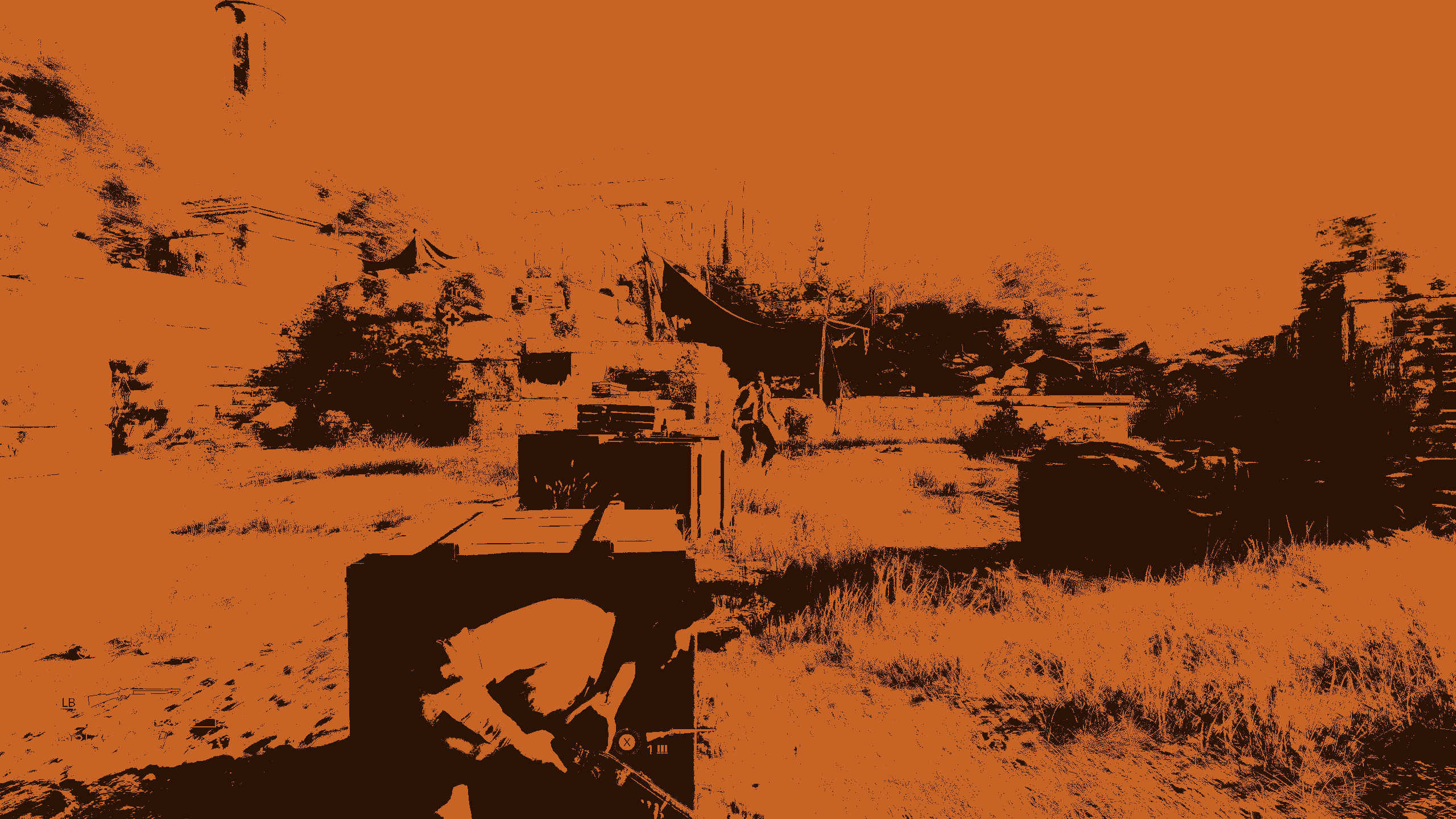
I have been trying to write this article for weeks now, struggling to formulate an articulate, considered, critical reply to Mafia: The Old Country while periodically messaging the other members of the Bullet Points team to apologise for holding up this month’s issue. The game has put me into a kind of neurotic triple bind. There are things about it that I like, and want to extrapolate into words. I feel like I should write down the good things about Mafia: The Old Country. It’s a game that is occasionally groundbreaking and succeeds in areas where videogames historically, traditionally, have failed. I don’t, for example, know of any other high-budget videogame where in the final level you play a pregnant teenaged girl, and the reason the stealth mechanics have tension is because if she gets caught, her pursuers will force her to have an abortion. You don’t get this kind of stuff in a mainstream shooter. And it wouldn’t make you a cynic if you reflexively bristled, even laughed, at the idea of a mainstream shooter that did try and do this type of sequence. There isn’t a rich history of big-budget game developers who you would trust to possess the collective writing and design abilities to make such an idea work. The fact Hangar 13 does it and does it pretty well is at least something.
I believe there are elements of Mafia: The Old Country that are exceptional and that if I write an article which doesn’t sufficiently surmise and engrave those, I am doing the game an injustice. The second part of the problem is easier to explain but also frustrating and selfish. I don’t want to repeat myself—I don’t want to write another article about how certain conventions of videogames and videogame mechanics inevitably ruin videogame stories. Anyone who plays games regularly or with any kind of intellectual interest—and certainly anyone who would seek out an esoteric website like Bullet Points—is already aware of the congenital disparity between games as written and games as played, the long-lamented ludonarrative dissonance. How do you write an article about this—your actions as a player contradict the given tone and plot of the game—without sounding like a stuck-in-the-past blowhard? You get it. Hangar 13 gets it. Everyone gets it. It’s an old problem, and actually, it’s probably possible to resolve it in your own head—we all know which bits of a game to internalise as ‘real’ and belonging to the narrative canon, and which parts to disregard from that canon, and what we do is we all inwardly craft our own variants of the story based on what we personally consider acceptable. The bit in Mafia: The Old Country when you drive through the valley with Luca and Cesare, and they’re talking about the upcoming horse races. That’s part of the story. That bit where you kill fifty police officers with a sawed-off shotgun. That isn’t. Maybe the rules for this kind of differentiation haven’t been authenticated and finalised. Maybe they can’t, because they’re arbitrary or subjective. But everyone, at some level, inside themselves, knows the deal, yes?
But then part three of the triple bind: I just … can't … quite … accept this. I resent the fact that, in order to sustain even the basic coherence of Mafia: The Old Country’s narrative, I have to revise upward my tolerance for bullshit. You can change Enzo’s outfit at any time in the game—Luca might come over and say ‘we’re going to meet a very important friend of the Don today,’ and then you can go and dress Enzo in the flat cap and eye goggles from the motor racing mission, which happened two in-game years ago—and nobody around him bats an eye. That’s how it is in every videogame. But in Mafia: The Old Country, Hangar 13 has created an entire system and user interface to allow you to wear incongruous outfits, but if you try and put one of them on, it also gives you a little warning: “Your appearance may not match the tone of the story.”
The developer knows this mechanic undermines the aesthetic. It also expects players, at least when prompted, to second guess themselves—to consider whether they value dramatic tone less than raw agency. So, I’m left with a simple question. In fact, the question is so simple I’m almost reluctant to ask it publicly, because a) it will make me look I’m only willing to engage with Mafia: The Old Country in the worst faith, and unable to see its better qualities for the sake of one common or garden videogameism and b) because I don’t want it to seem like I think I’m the only one who is asking this question. If the article I write is based entirely around this question, by implication, that suggests that I think the question needs to be asked, i.e., that other people have not asked it already. But the question is straightforward enough that any vicarious or tacit suggestion that other people might not have asked it already becomes tantamount to calling those other people stupid. But then, this is still happening, in this videogame—this quite esteemed videogame—in 2025. So what else can you do?
You just have to ask: if they know this mechanic is going to ruin the story, why is it in the game?
***
Ed Smith is one of the co-founders of Bullet Points Monthly. His Bluesky handle is @edwardsmithwriter.